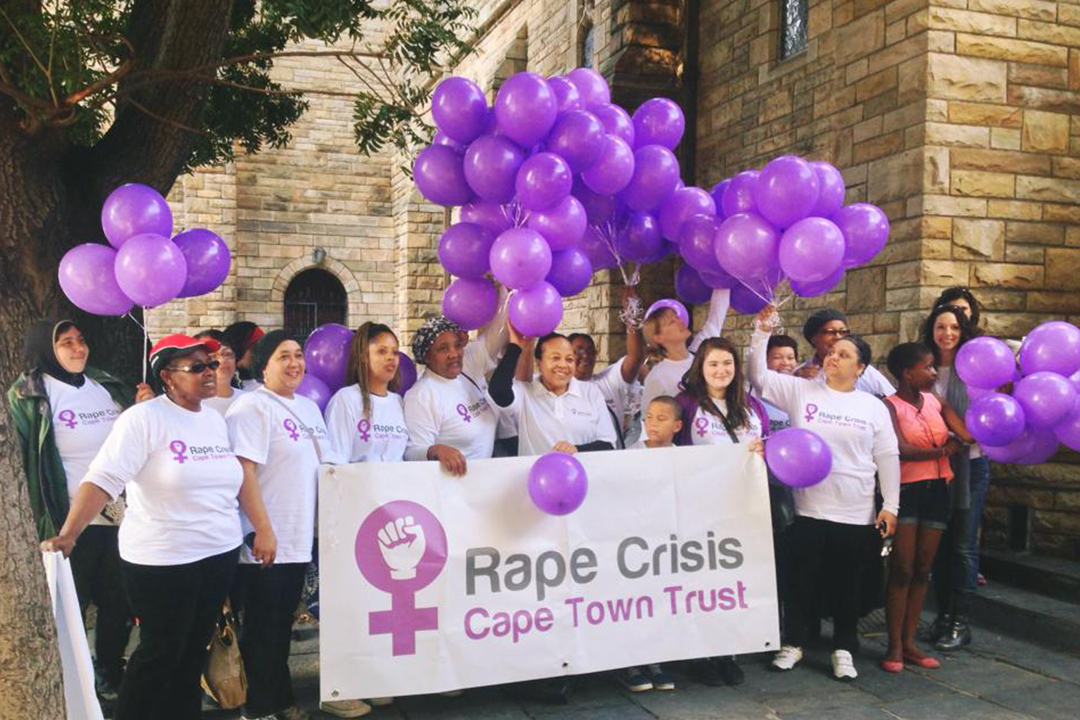By John DiConsiglio
For victims of sexual violence, the house in the South African district of Observatory is a safe place. From the outside, along a quiet tree-lined street, the building looks comfortable and unassuming. No one would guess it’s the headquarters of the Rape Crisis Cape Town Trust, the nation’s oldest organization for supporting rape and sexual violence survivors. Inside, women seeking help find a homey and welcoming space—couches and pillows, not bland offices and intimidating clinics. They meet friendly staffers, sympathetic counselors and, for the last four years, enthusiastic Columbian College students.
|
Ariella Neckritz |
“This is a beautiful place,” said Ariella Neckritz, a junior human services and women’s studies major who interned in the western Cape Town center during the fall 2014 semester. “It’s a place where people who have had horrible experiences of violation and disrespect can come to receive so many healing options. I’m lucky to be a part of it.”
Thanks to a long-time partnership between the Rape Crisis center and Dan Moshenberg, associate professor of English and director of the Women’s Studies Program at Columbian College, students like Neckritz have a once-in-a-lifetime opportunity to aid women in distress and gain hands-on experience in nonprofit management and social activism. While working with Rape Crisis to enhance its advocacy efforts, Moshenberg arranged for three Columbian College students—including current students Neckritz and senior women’s studies and biology major Shakti Naidoo—to intern at the trust while studying abroad at the University of Cape Town.
The students participated in every aspect of the trust’s work, from writing grant proposals and posting social media alerts to organizing community and peer education programs. Their efforts not only helped Rape Crisis address the needs of over 5,000 survivors a year, but also played key roles in keeping the nonprofit alive.
“Shakti and Ariella arrived at a time when the organization was in a serious financial crisis and nearing the brink of closure,” said Rape Crisis Director Kathleen Dey. “They brought new energy and skills to our team. They made huge contributions to keeping our doors open.”
Confronting a Crisis
Since the days of apartheid, South African women have faced a sexual violence crisis. The nation’s sexual violence rate is among the highest in the world, with an estimated 500,000 rape cases each year. The horror of the situation is compounded by the fact that 10 percent of South Africans are HIV-positive. Dey explained that much of the violence has its roots in the institutionalized dehumanization of the apartheid system, fostering disrespect for women’s lives and dignity. The current legal atmosphere, she said, has improved but still often falls short. Rape victims know little about navigating the complex criminal justice system. There are no provisions for survivors to receive psychosocial care. And, Dey said, law enforcement officials can be biased against survivors and treat their cases insensitively.
“We have a vision of a South Africa in which women are safe in their communities and where the criminal justice system supports and empowers rape survivors,” Dey said. “Our mission is to promote safety in communities, to reduce the trauma experienced by rape survivors, to encourage the reporting of rape and to work actively to address flaws in legal system.”
Since 2003, Moshenberg has been part of that mission. An expert in the many aspects of gender-based violence, he has worked with Rape Crisis to develop a multi-platform communications campaign and broaden the trust's advocacy efforts. His projects have included designing and conducting workshops, helping women develop writing and editing skills and strategic planning. He created the trust’s BlogSpot, which solicits articles authored by health counselors, lawyers, GW students and survivors themselves. “The blog is a place where people can participate in a conversation that will spark a public discourse,” he said.
|
Shakti Naidoo |
But as the trust faced critical funding and staffing issues, Moshenberg approached students in his women’s studies courses about working in their offices while studying abroad. “I look for savvy students who have a political sense,” he said. He found ideal candidates in Naidoo, a pre-med student who hopes to eventually specialize in women’s health, and Neckritz, a long-time student activist who has worked with groups like the Washington Peace Center and GW Students Against Sexual Assault (SASA). “They came to my office and asked if there was something they could do while they were in Cape Town,” Moshenberg said. “I told them: ‘I have exactly the right place for you.’”
Arriving in Cape Town for their internships, both Neckritz and Naidoo were uncertain about their actual roles. “I went in blind,” Naidoo said. “I honestly didn’t know what to expect.” Based on her experiences volunteering with U.S. nonprofits, Neckritz was ready to lend a hand with everything from filing to answering phones to typing grant requests. “When you come into a space like this you know it’s not about what you want to do. It’s about what they need you to do,” she said.
While neither student was qualified to counsel survivors, they both made an impact on outreach efforts and social media campaigns. “Shakti and Ariella brought fresh ideas for social media and other online platforms to the table,” Dey said. “Their Facebook posts, blogs and Twitter updates supported ideas like behavior-change communication strategies, tactics and campaigns that can help change public perceptions about rape, women and sex.”
During her six-month internship, Naidoo participated in a teen peer-education program called “The Birds and Bees.” Through discussion-based seminars on relationships, rape and gender equality, she helped train high schoolers from low-income neighborhoods to be role models. “A 14-year-old boy said to me, ‘Rape Crisis changed me a lot. I can tell another person about how to treat a woman,’” she said. “That’s uplifting.”
The experience inspired Naidoo to try the same approach at home. Upon returning to GW, she volunteered with Peer Health Exchange (PHE), an organization that trains college students to teach sex education to inner city ninth-graders. Naidoo persuaded PHE to transform its lecture-style lessons into a Rape Crisis-like model that relied on interactive activities and discussions. “The goal is not to tell students what they should and should not do, but rather teach an effective decision-making process so they can do what’s right for them,” she said.
Neckritz has also translated her Cape Town experience into campus activism. She helped SASA successfully lobby for making sexual violence prevention and education sessions available to incoming students. “Coming back to GW, I recognized that, regardless of where survivors are, they need support,” she said. “We need to help people learn about their resources and create spaces for survivors to share and talk. This issue massively affects lives—whether here at home or oceans away.”




